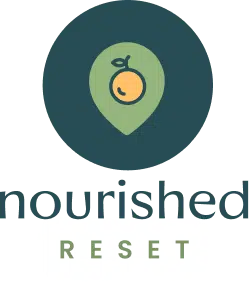
Balancing hormones naturally is not only possible, but it’s also one of the best ways to help bring your body back into balance. If you’re wondering how to do this, you’re not alone. In fact, nearly 50 percent of women in the U.S. experience hormonal imbalance, according to a recent survey from Dr. Anna Cabeca, certified OB/GYB and author of The Hormone Fix.
In addition, 43 percent of women also report negative effects on their health due to hormonal imbalance, which is a reminder that resolving this issue is so important.
My hormone diagnosis came 1.5 years ago when I discovered that adrenal insufficiency led me to have extremely low levels of estrogen, progesterone, and cortisol. My key symptoms were exhaustion, irritability, weight fluctuations, and inability to relax.
While I’m still working to improve my levels, I feel much better than I did a year ago. I am still very much on this healing journey and have to work really hard to mitigate and reduce the stressors of daily life (even when they don’t feel like stress, they are still stressors).
For me, the natural lifestyle changes have been so impactful, which is why I want to share some of them here with you. In addition, I’m sharing a little bit about hormones and hormone imbalance because this education is so important for women.
This article is not to be substituted for medical advice. Please seek the support of a professional if you’re struggling to balance your hormones or if symptoms persist.

Hormones and Hormone Imbalance: An Overview
Hormones are chemical signals in the body that help regulate a variety of internal processes that contribute to your mental, emotional, and physical wellness. A hormonal imbalance means there is either too much or not enough of a certain hormone in your bloodstream.
Because hormones influence such a wide scope of physiological functions, even the smallest imbalance can have serious health implications. For example, all of the following issues are commonly associated with a chronic, untreated hormonal imbalance:
- Abnormal metabolism
- Irregular menstruation
- Sexual dysfunction
- Insomnia
- Adult acne
- Infertility
- Diabetes
- Thyroid problems
- Gastrointestinal issues
- Anxiety or depression
- Chronic fatigue
- High cholesterol
- Unexplained weight fluctuations
Possible Causes of Hormonal Imbalance
If you notice one or more of the previous symptoms on a consistent basis, but can’t seem to figure out the cause, it could mean there’s a hormonal imbalance. Figuring out what’s at the root of this is key to finally finding the relief you’re craving.
According to the journal Endotext, any stimulus that disrupts the endocrine system (the network of organs that manufacture and release hormones) could result in an imbalance. That means there are a lot of potential causes and these are some of the most common:
- Chronic stress
- Insufficient diet
- Excessive alcohol or caffeine
- Electronic overstimulation
- Viral or bacterial infections
- Not enough sleep
- Head trauma
- Pregnancy
- Menopause
- Autoimmune diseases
- Abnormal skin growths
- Too much or too little exercise
- Certain medications
Tips for Balancing Hormones Naturally
In some cases, hormone replacement therapy or other medical intervention is recommended to rebalance the hormones. While HRT can be necessary at times, here are some key lifestyle changes you can make to support the healing journey of rebalancing your hormones.
1. Consume Enough Protein
Protein is a vital nutrient because it contains essential amino acids, which the human body cannot produce on its own. The endocrine system uses those amino acids to create peptide hormones, which are needed for:
- Brain function
- Physical development
- Energy metabolism
- Appetite
- Mood stabilization
- Reproduction
- Cardiovascular health
- Stress management
Some nutritious sources of protein include fish, lean poultry, nuts or seeds, chickpeas, lentils, eggs, and kale or spinach. My favorite ways to get more protein are quick and easy egg scrambles (sometimes I add extra egg whites to my two scrambled eggs for additional protein) and smoothies with protein powder or collagen powder that is also high in protein.
Log into the Lindywell app to find a wide variety of recipes packed with protein that can help rebalance your hormones.
2. Make Time for Regular Exercise
Insulin is a hormone that helps your cells convert sugar to burnable energy in the bloodstream. If the cells lose sensitivity to insulin, you can develop insulin resistance which puts you at risk for metabolic syndrome, diabetes, unexpected weight gain, or heart disease. Fortunately, exercise boosts insulin sensitivity for up to 72 hours, so the more often you move, the more you’ll prolong this benefit and help rebalance this hormone.
I know I’m a Pilates instructor (so just a little biased!), but Pilates truly is one form of exercise that can help you reap all of these benefits, while not over-taxing your system. This is so important if you’re in a state of hormonal imbalance.
If you want to experience the power of Pilates, try a 14-day free trial of Lindywell. In our app, you’ll find hundreds of Pilates workouts, along with recipes and guided breathwork sessions!
3. Eat Foods That Support a Healthy Gut
Another way to regulate insulin and balance your hormones is to maintain a diverse gut microbiome. Your intestines are home to trillions of microorganisms that boost immunity and metabolism and the goal is to have a diverse and appropriate level of microbiome in the gut.
To optimize gut health, consume a diet rich in antioxidants, fiber, probiotics, and prebiotics. Think: leafy greens, berries, cacao, legumes, almonds, whole grains, or fermented foods.
4. Integrate Mindfulness in Your Routine
When you feel stressed, the adrenal glands release cortisol, which is also known as the stress hormone. When chronic stress is present and cortisol levels stay elevated, you may experience brain fog, anxiety, depression, overeating, hypertension, or heart issues.
This is why stress management plays a crucial role in balancing hormones and was critical for the shifts I’ve experienced and how I’m feeling as well. There are many ways to reduce your stress with lifestyle changes. For me, it was important to get more intentional about my schedule and practice breathwork regularly.
If this resonates for you, learn more about the benefits of breathwork for reducing stress in our podcast episode, Using Breathwork as a Path to Wellness.
5. Moderate Alcohol and Caffeine Intake
In most cases, it’s not problematic to consume alcohol and caffeine in moderation (unless you have an intolerance or dependence on them). In excess, however, both substances wreak havoc on your hormones, specifically the pituitary hormones estrogen, testosterone, and progesterone.
Enjoying a moderate intake of alcohol and caffeine, or letting it go altogether, is a simple way to promote hormonal balance. Note that this is a lifestyle shift that may take time. If you’re used to multiple cups of coffee or a few glasses of wine a day, you can slowly wean yourself down to just one or none over the course of a few weeks to give your body time to adjust.
6. Get Adequate Sleep
While sleep deprivation wasn’t an issue for me, it is the culprit for many women experiencing hormonal imbalances. Here are a few reasons why this is such an important lifestyle factor to consider as you heal:
- Your brain requires uninterrupted sleep to release the growth hormone, which in turn promotes muscle and bone density.
- Lack of sleep can affect ghrelin and leptin levels, both of which you need for metabolic function and energy expenditure.
- Sleep deprivation affects melatonin secretion, which can impair the sleep-wake cycle and cause issues such as fatigue or insomnia.
While it can be challenging to get adequate sleep for many reasons (hello hectic work schedules and parenting), it’s best to aim for at least seven hours each night as often as possible.
For me, the challenge was calming my mind in the evening and unplugging from work to reduce stimulus and unwind. Allowing my cortisol levels to lower and my melatonin levels to rise was (and is) a very important part of my journey and something that may be supportive for you to focus on as well.
Learn More About My Experience
If you’ve been diagnosed with a hormonal imbalance, it can be supportive to hear from others who have as well. That’s why I regularly share my story and talk about hormones on the Balanced Life Podcast. Here are a few episodes to check out if you want to learn more about my experience and this topic:
- 52: A surprising diagnosis
- 69: Steps I’ve taken toward hormonal balance
- 71: The hidden hormone epidemic
- 72: What every woman should know about hormones
Natural Hormonal Balance Is Possible
If your health feels “off,” but it’s hard to put your finger on the exact cause, consider whether there’s a hormonal imbalance at play. If so, understanding the root and then balancing hormones naturally with these simple, but important shifts can be just what you need to get back to feeling like yourself again.








14 thoughts on “6 Tips for Balancing Hormones Naturally and Feeling Good in Your Body”
Yes, for a life time I have been seeking help. I’m 70 yrs of age & continue to seek help. I’m a DES daughter which most people I have met, including doctors & nurses do not know about DES. DES is a synthetic hormone which is a long story starting in 1938. DES was handed out like candy to women all over the world…boys & girls for 3+ generations have suffered & continue to suffer because they simply do not know. Please go to DES action center…their web-site provides all the history & facts about DES…I was asked by the Federal Judge Jack Weinstein to speak in his chambers to Judges from around the world to help them to understand what has happened & how to compensate the legions of women & men who have been affected & still are. There is no compensation. Should you Robin, through you health journey, find a Dr. that specializes in helping DES daughters I would be grateful as well as those who know they are DES daughters.
If I could, I would attached a statement sent to me by a prominent Congressperson stating that my paperwork that took 30 yrs to go from the state courts to the federal courts & finally, as stated, my story resonated through the walls of Congress. Thank you for reading & for all you do to empower women in their bodies, minds & souls.
I would love to see the statement you attached but I don’t see the attachment. I am a DES daughter as well.
Mary
We’re so sorry to hear you’ve been affected by DES and for the challenges it has created for you. How wonderful that you are advocating for yourself and others for help, understanding and compensation. Congratulations on your success in bringing attention to DES and are hopeful that Congress and the courts will take corrective actions. You are an inspiration, Pat!
I think it is important to clarify which type of diabetes you are referring to. Type 2 diabetes is very different than Type 1 diabetes, which is an auto-immune disease with no cure. Type 2 can often be treated with lifestyle changes. (I did not understand the differences myself until my daughter almost died from Type 1 Diabetes onset at age 2.)
Thanks for bringing this up, Holli. Type 1 and Type 2 Diabetes are very different and treated in different ways, but both can be affected by hormones. We definitely encourage seeking medical advice for anyone experiencing symptoms of either type of diabetes. We’re sorry to hear how your daughter was affected by diabetes, that must have been such a scary time for you and your family. We hope that she is doing well now!
Having experienced this about a decade ago, my list would be somewhat different. I got help from a Nurse Practitioner who had been treating women for over 20 years. She made predictions based on my symptoms but, went on to explain she would test me for stress hormone, Vitamin D, etc. Her predictions were right on. A whole food food diet (not based on protein), 30 minute walk (to destress), and Vit D3 spray for fast absorption had me feeling like a new person in about a month. The benefit of all these things is fiber, exercise and being aware of how Vitamin D acts like a hormone in our body has empowered me in my overall health, BP now stable and much improved immunity. Finding a special person to be your provider is key. The OBGYN wanted to put me on Prozac and birth control pills. So glad I got another opinion.
We wouldn’t agree more, Laura, finding the right medical professional is so important! Way to trust yourself to find the someone to understand and treat your symptoms and your whole self.
I’m not sure if you can help me. I’m assuming I’m hormone deficient. I have gained a lot of weight over the last 10 years. I was not skinny but average weight. I have gained at least 70 lbs. I’m now retired and I’m thinking more about me, rather than my business. My belly fat is awful and I need to lose it. Mt family Dr. Is not very helpful. Just says exercise and eat less. I had health issue’s with my thyroid and had the iodine treatment for Graves. From then things haven’t been the same. I was 58 145lbs, then and now I’m 69 205lbs. and growing.
We’re sorry to hear of the medical challenges you’ve been facing, we understand how thyroid issues can take a toll on your body. We encourage you to trust yourself to find a medical professional that listens to the symptoms you’re experiencing to treat your whole body.
Congratulations on your retirement, it can be such a great time to focus on yourself and your wellness!🎉 We’d love for you to give Lindywell a try with our 14-day free trial here, https://lindywell.com/freetrial/.
Have you ever heard of Dr Elizabeth Bright? She treats many with hormone imbalances. She has a book, Good Fat is Good for Women: Menopause, and many you may find interviews on YouTube.
Thanks for the suggestions, Jody!
Nutrition With Judy is great too. ( YouTube)
Judy Cho, board certified Holistic Nutritionist and Nutritional Therapy Practitioner. She is so smart.
Check out Dr. Avivia Romm- she has a website, book, and a FB page all supporting hormonal imbalances and adrenal insufficiency.
You will definitely enjoy the 2 part, Episodes 71, of The Balanced Life Podcast, where Robin talks with Dr. Romm on The Hidden Hormone Epidemic 🙂